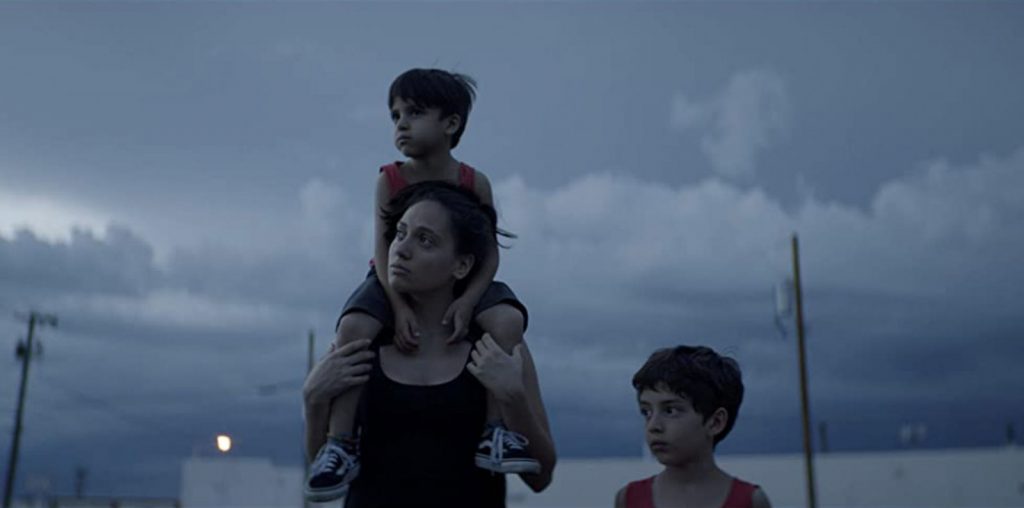
Few filmmakers came out of the gate as strongly as M. Night Shyamalan did in 1999, that was the year his debut movie “The Sixth Sense” opened to rave reviews and staggering box office. “Unbreakable,” his follow-up, also did respectably in both areas. But chinks began appearing in his armor with the release of “Signs,” which was 75 minutes of occasionally engaging suspense followed by one of the most preposterous “twists” in recent memory. Ditto for “The Village,” the movie that marked Shyamalan’s first real critical mauling. With “Lady in the Water,” Shyamalan attempts to distance himself from the whole “gotcha” angle of his first three movies by telling more of a traditionally structured tale.
As the film begins, we’re told that humanity once lived in friendship with a race of water dwellers who offered us guidance. Mankind, being the selfish and aggressive twats they are, eventually abandoned the relationship in favor of making war and watching wrestling, and the water folk elected to bail on us. Now, at long last, we’ve reached a point in time when we could really use their help.
Seriously, have you seen the state of wrestling these days?
As luck would have it, one of these aquatic “narfs” (yes, that’s what they’re called) has taken up residence in the swimming pool of an apartment complex called The Cove. The Cove’s superintendent, Cleveland Heep (Paul Giamatti), knows something strange is afoot in the pool, but it isn’t until the narf in question (Bryce Dallas Howard) rescues him from drowning and tells him she’s come to change the course of human history that he realizes his sad life may have some greater meaning. Or something.
Things aren’t all happy and pastoral, as it turns out. The narf (who goes by the name of “Story”) is being stalked by something called a “scrunt,” a sort of hyena-compost heap hybrid that would love nothing more than killing Story before she accomplishes her mission.
“Lady in the Water” started as a bedtime story Shyamalan wrote for his kids, which is very sweet and what not, but doesn’t provide a lot of meat for a feature-length motion picture. As with his previous two films, “Lady” is more of an ensemble picture, and truly the Cove is the most ethnically diverse and community-minded apartment complex in the continental United States. There’s a family of six Mexicans, five stoner dudes, a Korean mother and daughter, a black crossword genius and his son, and an aging hippie woman (Shyamalan must’ve been a huge “Big Blue Marble” fan). And while it’s hard to maintain too much indignation at the subject matter when films with much flimsier premises are made every year (“R.V.,” anyone?), the whole exercise reeks of self-indulgence. From using a third of the film’s running time to have Cleveland’s Korean neighbor explain the entire legend in exhaustive (and exhausting) detail, to actually casting himself as the genius author whose encounter with the narf will eventually lead him to write a world-changing book, Shyamalan has clearly been taking his American Express commercials too seriously. For some perspective, do you remember the scene at the end of “The Village” where he added the scene with him playing a guard who helpfully explained everything because the movie made no sense to that point? Now imagine 90 minutes of the same, combined with a distinct impression that he’s making it up as he goes along.
It’s also quite Rob Schneidery of Shyamalan to make the main a*****e in the movie a film critic. And not just any critic, but one so arrogant he convinces himself that his keen knowledge of horror movie construction will allow him to survive an encounter with the scrunt unscathed. Because, as we all know, movie critics are so removed from reality (where, apparently, “The Village” was a big hit) they can even talk themselves out of behaving instinctively. At least we don’t give ourselves mysterious sounding middle names, “Night.”
Shyamalan, like Zaphod Beeblebrox, is unable to abide the existence of anything more important than his monstrous ego. Genuine acting talents like Giamatti, Howard, and Jeffrey Wright are given little to do while Shyamalan spoon feeds us his simplistic tale. Story spends most of the movie looking scared and/or bewildered, while Giamatti desperately needs to branch out into something besides the loveable schlub. The film’s scares, such as they are, consist largely of sprinklers that sound like gunshots when they turn on and the scrunt’s annoying habit of popping up on screen without warning. If Shyamalan is going to use his kids as a focus group for future projects, maybe he should start making movies for Nickelodeon already and stop wasting our time.

